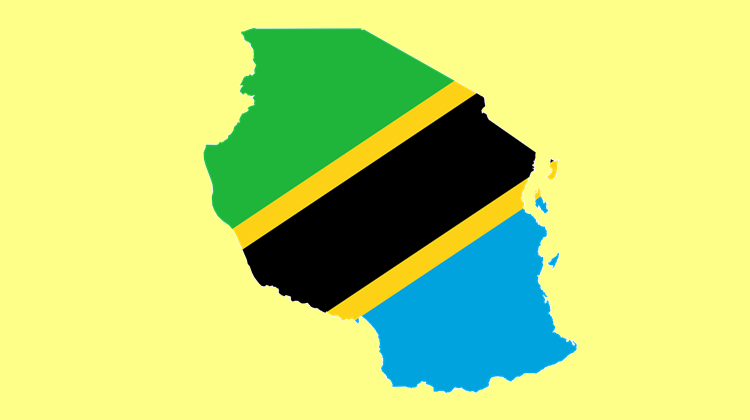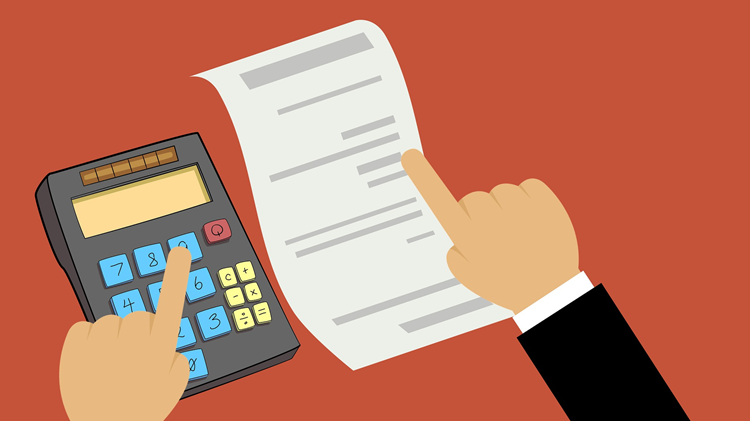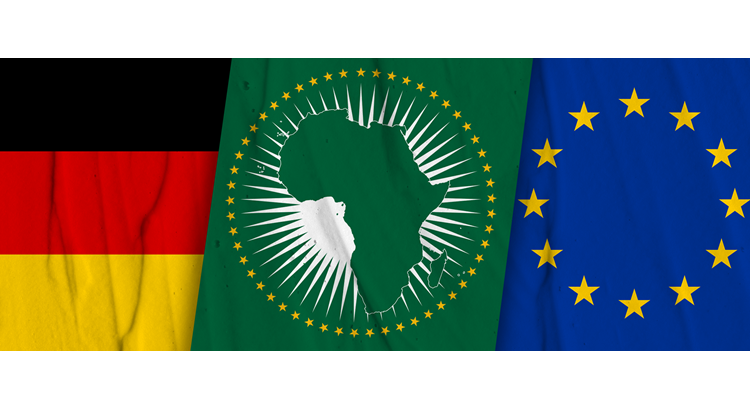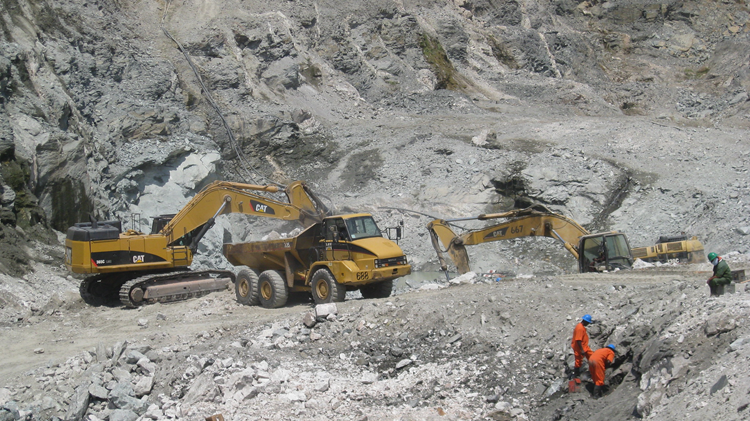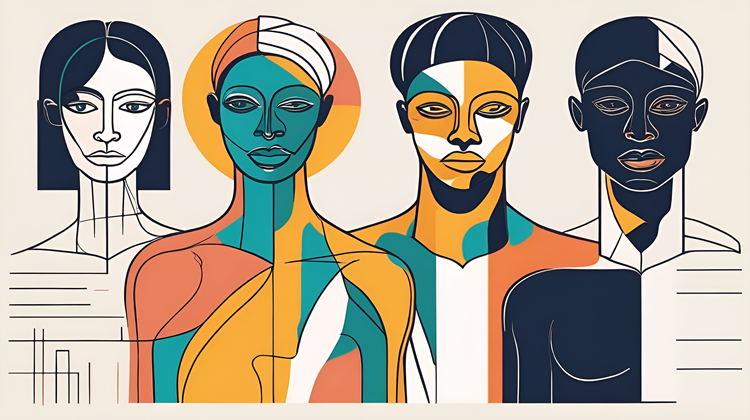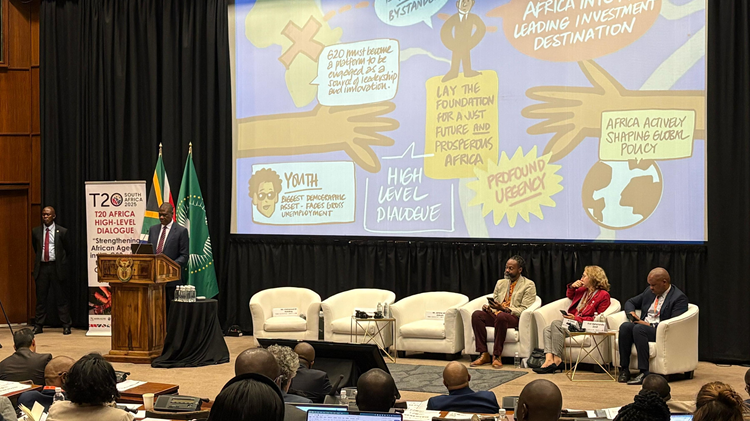Poly-crisis or poly-peace?
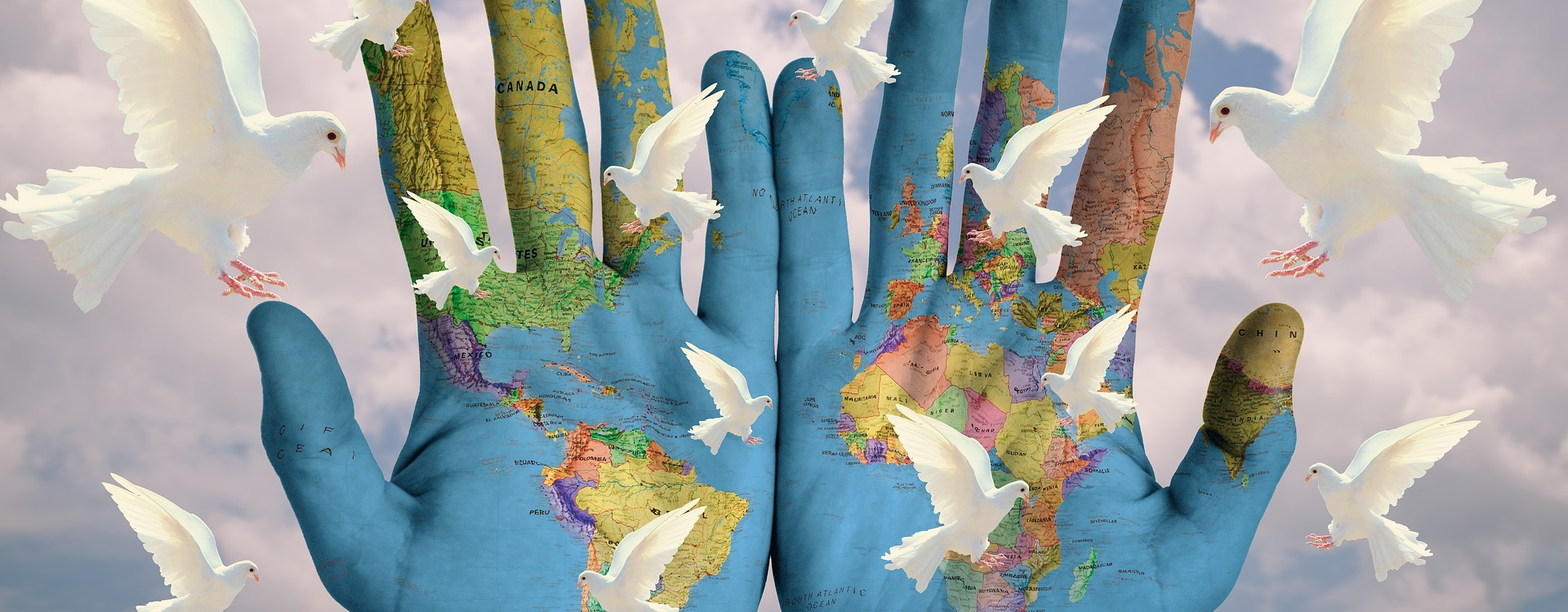
Leaders have the power to shape humanity’s global future.
We are today confronted with a fracturing world. Humanity has enjoyed relative peace since World War II, but there is a sense now that we have entered a perilous time of upheaval. Some have begun to describe this moment in history as a poly-crisis – one of wars, pandemics, economic shocks and increased strain on the social fabric globally.
Geopolitical competition is back with a vengeance. Social disparity is at an all-time high. The global economy is shifting, with ballooning public debt, overhyped equity markets and unsettled trade relations. Climate change is worsening the precarious environment.
In the past, the broad strokes of history were painted by the slow-moving brush strokes of demographic change, political evolution, and expanding economic exchange. Today, we also have to make sense of the frantic scribbles of rapid technological innovation and the polarising goads of changing social values. What complicates matters is that these drivers of social change are deeply interconnected and their outcomes are unpredictable.
Drivers of social change are deeply interconnected and their outcomes are unpredictable
Is trouble inevitable on the global horizon? Can we arrest the fading vision of a shared and prosperous human future? Can the poly-crisis be replaced by a poly-peace? Importantly, can individual leaders redirect the tide and change the course of history?
Leaders can change the plotline of history
In times of systemic transformation, such as we are witnessing, leaders can change the plotline of history. South Africa witnessed one such change during the life and legacy of Nelson Mandela. He stepped out of the cell by which racial hatred had imprisoned him, into the South African presidency, with a radical personal commitment to a national vision of reconciliation. Mandela changed the course of history of his nation, by altering the choices first of his political party and then of his country. In so doing, he set a profound example of how to change the world for the better. Mandela was celebrated for his leadership across the world.
Today, there are a handful of leaders who could follow Mandela’s example, and redirect the course of history towards peace. They have the power, but the question is whether they have the moral and ethical character – and the vision? Our future is in their hands.
US-China: Imagine if President Xi Jinping and President-Elect Donald Trump relax the Taiwan Strait debate
For as long as the South China Sea and Taiwan Strait remain a potential military flashpoint, Asia’s future hangs in the balance. China's claim of control and the US-based counterclaims for democratic self-determination for Taiwan are serious matters. But, risking military confrontation between the Western and Eastern superpowers over it is evidence that neither party values principled peace over tribalist ideology.
Whichever way it goes, the situation will have significant implications for international trade and global supply chains, particularly in technology sectors reliant on semiconductors, where Taiwan still plays a pivotal role.
Imagine if Xi and the new US president agreed to assure Taiwan of a century of peace, in the interest of global stability. Their pact for peace would be the greatest gift the two superpowers could offer humanity, allowing billions in that region and around the world to carry on building their lives and livelihoods.
Russia-Ukraine: Imagine if President Vladimir Putin ends Russia’s war in Ukraine
Vladimir Putin’s war is a major source of geopolitical instability which has produced extensive military, economic and political repercussions. The cost of human life has been enormous. The sanctions against Russia, disruptions in energy markets, and significant geopolitical tensions between NATO and Russia have only harmed the people of all nations involved, while perversely enriching those that feast on the carcasses of the global military-industrial complex.
Imagine for a moment, if Putin ended the war, and set Russia back on a path towards reform and reconciliation with her European neighbours, for long-term prosperity. The villain would become a hero, and Putin would be remembered in history as the once-dictator-in-chief who converted his destructive approach to Russia’s regional security, into a country again at peace with its neighbours. A Russia which could again offer the world the gifts of its talented people and the blessings of her precious natural endowments.
Iran: Imagine if Ayatollah Khamenei scales back Iran’s meddling misadventures
The persistent instability in the Middle East, inevitably worsened by Iran's insistence on developing a nuclear program and its involvement in aiding regional conflicts, remains a hindrance to the future well-being of the millions of Arabs living in Iran’s sphere. Not only do Iran’s actions undermine global oil markets and have broad implications for regional security, but they also create an uninvestable climate in the Middle East, in which repression and extremism can thrive in the place of economic productivity, growth and human development.
No amount of fundamentalist religious repression by the state will advance the dignity of the region’s people and return Iran to the beauty and ingenuity that once emanated from her and her neighbours. Ayatollah Khamenei will choose by his actions whether to be a long-remembered statesman or a hindrance to progress, forgotten and unforgiven. Khamenei would best serve his people by repositioning Iran as a good citizen, among the family of nations.
Israel: Imagine if Benjamin Netanyahu scales back the vengeful war he has visited on Gaza and the Palestinian people
One can understand how Israelis may now be fuelled in this fight by pain, trauma and even hate, given the cycle of conflict and deep-rooted political and territorial disputes in which they have for decades been caught up. Palestinians surely feel the same.
But Netanyahu’s disproportionately violent pursuit of Hamas has crossed a line which goes far beyond what the impositions of Israel’s military presence and enforced blockades on Gaza ever did. Not only is Israel curtailing the daily freedoms of Palestinians, but Netanyahu’s chosen approach is taking from them and thousands of their children, their most sacred freedom, their right to life. A just war is no longer just when it punishes an entire population.
Imagine if starting today, under Netanyahu's leadership, the Israeli government rolled back the tanks and the rhetoric and sought a new path to peace. If Netanyahu led the development of a visionary new pathway, from conflict to mutual respect, dual statehood and reconciliation. This would take immense magnanimity from all Israelis. It would require an elusive humanity on both sides of the conflict and a rejection of the self-defeating hate which has been allowed to fester in too many for too long.
For one to imagine that these leaders change their minds, their hearts and their ways may seem juvenile and naïve – yet the impossible only seems so until someone has the courage to think the unthinkable, and speak the unspeakable, to do the unimaginable.
US and climate: Imagine if President-Elect Trump changes his denialist tune on climate change commitments
Globally, ecological precariousness due to climate change is a critical risk that will lead to growing economic shocks and massive human displacement. If left unchecked, it poses risks such as severe weather events, rising sea levels and loss of biodiversity, which in turn will drive economic and social instability. Specific areas like the Amazon rainforest, the Arctic, and small island developing states such as the Maldives are particularly vulnerable and could see entire nations lose their land, livelihoods and heritage.
In this context, having a US president who would once again roll back his nation’s climate commitments is not only a betrayal of America’s national integrity but a gross dereliction of the United State’s moral duty as a global superpower. With the great power which the US has, comes great responsibility to do the right thing.
Imagine if Trump decided to choose renewables above oil and gas – accelerating rather than halting the progress made by the US to contribute to a sustainable world in recent years. He would go down in history as the great restorer of the relationship between humanity and our habitat. Of course, this would require a radical departure from the past. Can Trump surprise his critics and lead on climate?
Africa: Imagine if Africa’s presidents pivot from greedy poor-man’s politics to prioritise national economic development and regional integration
Imagine if Africa’s regional power-holders, such as Nigeria’s Bola Tinubu, South Africa’s Cyril Ramaphosa, Kenya’s William Ruto and Prime Minister Aziz Akhannouch of Morocco along with their continental peers, became tough on corruption and acted like hardliners for good governance.
Africa’s lagging economic situation, with over 500 million people living in poverty, is comparatively the greatest human tragedy. The region faces a complex blend of political uncertainty, economic fragility and social dislocation due to ongoing conflicts, terrorism and weak governance. This makes it a significant geopolitical flashpoint for insecurity that will only spread to the rest of the world. A change for the good in Africa, given its population and its natural resource endowments, would not only be a miracle for the continent’s more than 1 billion inhabitants but produce a sigh of relief for all humanity as it faces a collective future.
Leaders can choose a better global future for us all
By changing direction, these leaders can change the world right now. They can choose a better global future for us all.
They can, in a time of anger, choose forgiveness. In a time of fear, choose hope and in a time of uncertainty choose a better future. They can transform growing global conflicts into a poly-peace, and have the courage to lead for the good of all humanity.
Image: NoName_13/Pixabay

